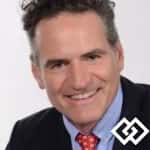SEC Fines Company $50 Million For Covert Trading
Updated on
Case Overview
This case involves a company that was fined $50 million by the Securities Exchange Commission for secretly trading its own program in its dark pool trading system. The Securities Exchange Commission found that the company misused information from its dark pool subscribers to implement high-frequency trades for its own benefit. The attorneys represented shareholders who were not made aware of the company’s activity for several years and suffered losses as a result. An expert in trading systems was sought to explain to a jury how dark pool trading systems work and the dangers of testing any sort of project within the system. The expert was also asked to comment on why the project would be of such critical concern to these clients and thus why the company should have initially disclosed its program to its subscribers.
Questions to the Business expert and their responses
Please explain your experience with dark pool trading systems.
I am the founder and president of a FINRA broker-dealer and SEC-registered alternative trading system (ATS), which runs a trading network that can be classified as a dark pool. Prior to founding this company, I was head of sales and strategy at a block trading leader. I am very familiar with all the dark pools launched over the last ten years.
Please briefly describe the importance of system confidentiality and the dangers of testing projects within the system.
System confidentiality is critical to the proper functioning of a dark pool and is the principal reason why institutional investors use them to execute their trades. When institutional investors send orders to a dark pool, they are revealing two types of information that they wish to remain secret or hidden from anyone who could take advantage of that information. First, they are sending information on their order: the stock, the number of shares, the direction (e.g. buy or sell) and, often, their limit price. Second, they are sending information on their identity. The first bit of information can be used against them in the short term. In other words, if I know you are a large seller with an aggressive limit price, I can use that information to trade against you and make money. The second bit of information can be used against them in the medium/long term. In other words, if I know that Fund XYZ is a large holder of the stock (which is often public information), and I know they are a large seller (private information known only by the dark pool), then I know that they will likely put pressure on the stock. Again, I can use that information to my advantage. For that reason, dark pools must keep order and identity information extremely private and confidential.
About the expert
This highly qualified expert has more than 10 years of experience in dark pool alternative trading systems. He earned his BA from Yale University, his Master's degree in International Affairs from Columbia University and his MBA from Massachusetts Institute of Technology. He has been in the business and trading group industry since he began his career at McKinsey & Company in 1996. He currently serves as the founder and president of a trading group in New York.

E-231153
Specialties:
Subscribe to our newsletter
Join our newsletter to stay up to date on legal news, insights and product updates from Expert Institute.
Sign up nowFind an expert witness near you
What State is your case in?
Subscribe to our newsletter
Join our newsletter to stay up to date on legal news, insights and product updates from Expert Institute.

